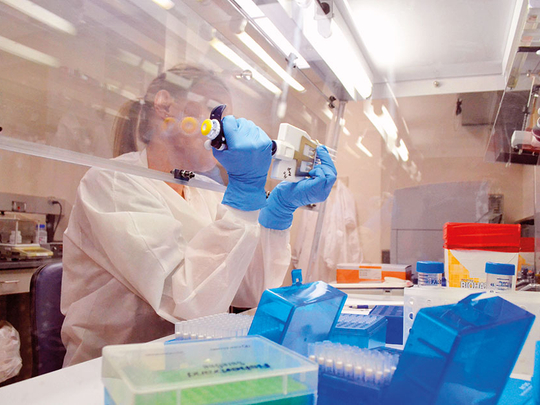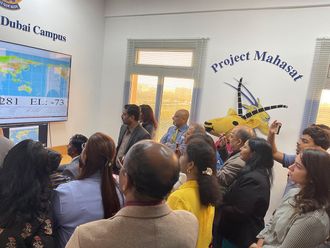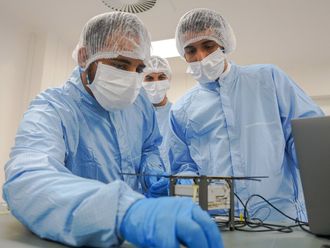
London: A revolutionary genetic editing technique designed to repair faulty DNA could be used by criminals to disappear from forensic databases, leading experts have said.
It is hoped the Crispr system, which acts like molecular scissors to snip away damaged genes and replace them with healthy code, will eventually fix diseases such as sickle cell anaemia, cystic fibrosis and muscular dystrophy.
However, Professor George Church, of Harvard University, who pioneered the use of the Crispr technique, said it could also be used by criminals to disappear from forensic databases or evade detection.
Crispr kits can be bought online for around £150 (Dh745), and last year Josiah Zayner, a former Nasa biochemist, injected himself with a genetic cocktail during a live-stream to increase his muscle mass.
Asked if Crispr could alter DNA to the extent it would make forensic evidence unusable, Prof Church said: “We could do that today, easily. A lot of it is done by blood and even if you just get a stem cell transplant you have a new identity. Crispr actually would be easier than a stem cell transplant because (a transplant) would have to be done sterilely and you would need to irradiate yourself to get rid of the old ones.”
Crispr is expected to revolutionise health care because it is a quick and cheap way to genetically edit genes. But the therapy has a more sinister side and has led to biohackers performing dangerous experiments on themselves.
The growing trend led the US FDA in to issue a warning against self-administration of genetic therapies, saying kits for human use were against the law.
Dr Eleanor Graham, programme leader in forensic science at Northumbria University, said it would require a “fairly extreme” medical intervention for criminals to use Crispr to alter their DNA. But she added: “I could foresee a future when reference samples from a suspect may need to be tissue matched to the crime scene sample for comparison purposes, if this became a reality.”
However other experts were more sceptical about the possibility of criminals genetically editing their DNA.
Dr Alexander Gray, of the Leverhulme Research Centre at the University of Dundee, said that genetic editing in the livers of mice had shown the new DNA eventually takes over, replacing the genetic code.
But he said it would be harder for humans. “If you were in the forensic database and you changed your DNA it would be possible to avoid detection, but I think it would be extremely difficult to achieve,” he said.
“You can manipulate the genome but to do it on the scale where it would have a forensic effect would be tricky.”












